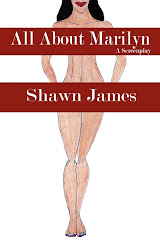Acting White. It’s what some African-Americans call a person who speaks articulately with good diction, aspires to achieve academically or is well-educated. It’s something some people have called me for just being myself. Since I was a teenager It’s always puzzled me how African-Americans often associate a person’s intelligence with the color of their skin.
My most recent experience with this cultural trend was when I took my PC Repair class a few months ago. I was talking to one of my classmates when another interjected “He talks like a white man.” I didn’t take offense to it; Even when I was in High School, at college or the many jobs I’ve worked people have been surprised by my articulation and strong diction. Like it was unexpected for an African-American male to express any semblance of intelligence.
I have often been laughed at by some and mocked by others for my intelligence and good diction, however I haven’t once thought of changing my speech pattern to reflect what is perceived as “black”. While my peers may have thought my speech was peculiar, I never saw speaking well and being intelligent it as just a “white” thing. I always thought intelligence reflected positively a person’s character; a sign of patience, understanding compassion, and reason. Those were character traits to me that every person should try to aspire to have.
Some of the people who have inspired me and my writing didn’t consider expressing their intelligence or speaking well a white thing either. I don’t believe Malcolm X was seen as “acting white” when he spoke articulately back in the 1960s. Neither was Dr. Martin Luther King Jr. And I enjoy hearing African-American actors like Salli Richardson, Keith David, Charles Dutton, and Denzel Washington perform because of the near perfect diction in their performances.
From what I’ve learned about the African-American experience Education has always been a “Black” thing. Throughout history, from the Ancient Egyptians who were masters in Astronomy, science, engineering and math to artists like Juan De Pareja, writers like Phyllis Wheatley, or inventors like Benjamin Banneker and George Washington Carver to educators like Booker T. Washington, Mary McLeod Bethune Barack Obama, African-Americans have always pursued excellence in education.
Even my slave ancestors aspired to learn because they saw education as a way to improve their economic and social condition. After many southern states like Virginia passed laws against teaching slaves how to read and write, many still persevered towards gaining literacy because they saw it as an opportunity to empower themselves. From the 1800s up until almost recently, being an educated intelligent black person who spoke well was considered a good thing. It wasn’t considered “acting white”.
So I’m wondering where did this “acting white” thing come from over the last fifteen or twenty years? As I see it, what people called “Acting Black” as it’s seen in mainstream America to me doesn’t seem like a representation of “Black” but a perpetuation of longstanding racist stereotypes. These “real black” images presented to the African-American community seem more like a repackaging of the degrading images of the black buck, the coon, the black harlot, Tragic Mulatto, jigaboo, and the mammy to me.
What’s more ironic to me is that many of the wealthy rappers, ballplayers thugz and other assorted people who perpetuate the degrading images of “acting black” are the same ones sending their children to high-priced private schools to learn how to speak well and become intelligent, while promoting to the black masses a message of ignorance.
So on this issue of race and identity I often wonder who really is “acting white” and who is “keeping it real”. Are the African-Americans who aspire to speak well and express their intelligence “keeping it real” because they follow a centuries long history of education that has been part of the black community, or are the African-Americans who identify with “street” culture “acting white” because they promote and perpetuate a stereotypical image of African-American life that makes Middle America comfortable.
Saturday, December 05, 2009
Subscribe to:
Post Comments (Atom)






No comments:
Post a Comment